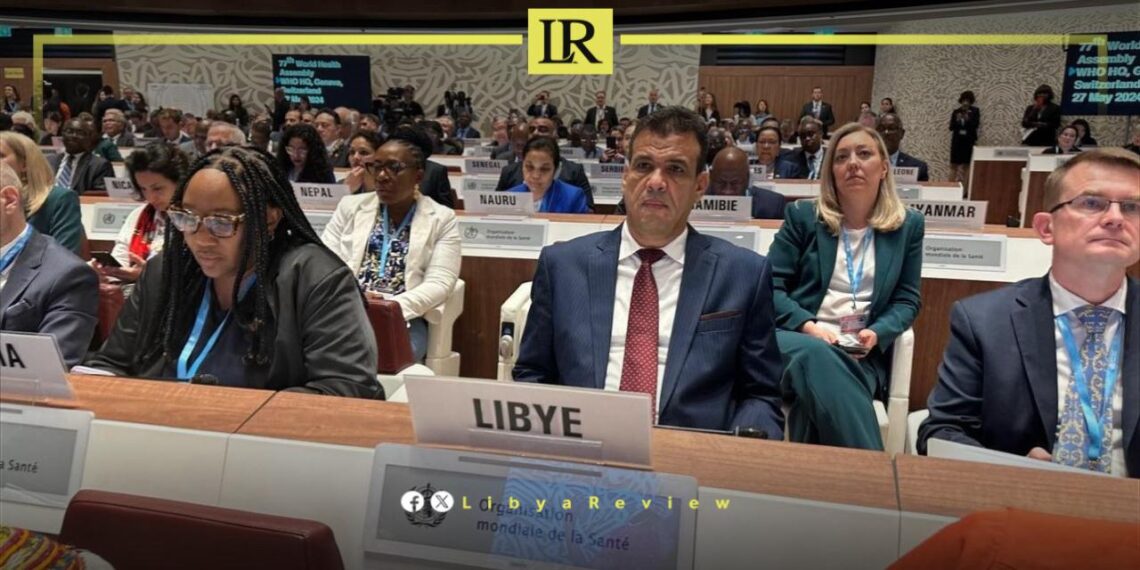Deputy Prime Minister and Acting Health Minister of the Government of National Unity (GNU) Ramadan Abu Janah attended the opening of the 77th World Health Assembly on Monday. The event, held in Geneva, saw participation from over 90 countries under the theme “Health for All, All for Health.”
The World Health Assembly’s agenda focuses on the World Health Organization’s (WHO) triple billion targets: extending universal health coverage to one billion more people, better protecting another billion from health emergencies, and ensuring a further billion enjoy improved health and well-being.
Key discussions also addressed major global health challenges such as climate change, disease outbreaks, and the impact of conflicts on public health. (Geneva – Libyan News Agency)
Earlier this month, the World Health Organization (WHO) and the Libyan Ministry of Health of the Government of National Unity (GNU) have announced the approval of the National Mental Health Strategy 2024-2030.
This decision follows a two-day workshop held in Misrata, bringing together mental health experts from various parts of Libya with their counterparts from the World Health Organization.
According to a statement released by the World Health Organization, the adopted strategy aims to address urgent challenges in the field of mental health in Libya by focusing on enhancing prevention, early detection, treatment, and careful monitoring of mental illnesses.
Moreover, the strategy seeks to establish a comprehensive and integrated healthcare system to ensure that all citizens have access to high-quality mental health services, psychological support, and social care, as per the organization’s guidelines.
Furthermore, the strategy includes a set of vital initiatives, such as establishing a National Mental Health Committee, providing trained workforce in all specialties, and engaging various sectors and stakeholders in efforts to improve mental health.
Ahmed Zouiten, the World Health Organization’s representative in Libya, praised the approval of the strategy, affirming that it represents a crucial step towards prioritizing mental health in Libya.
Zouiten added, “This strategy underscores the organization’s commitment to building a resilient and healthy society that recognizes mental health as a universal human right.”


